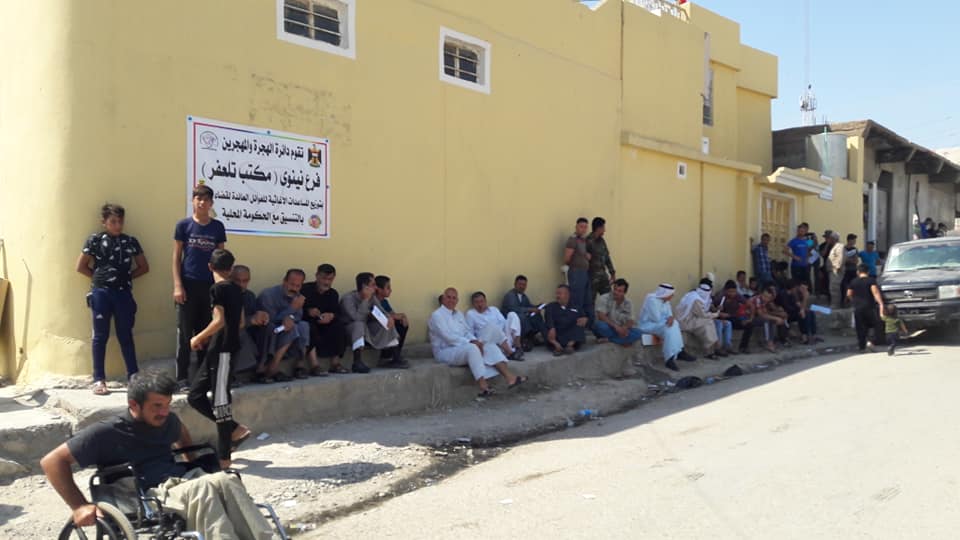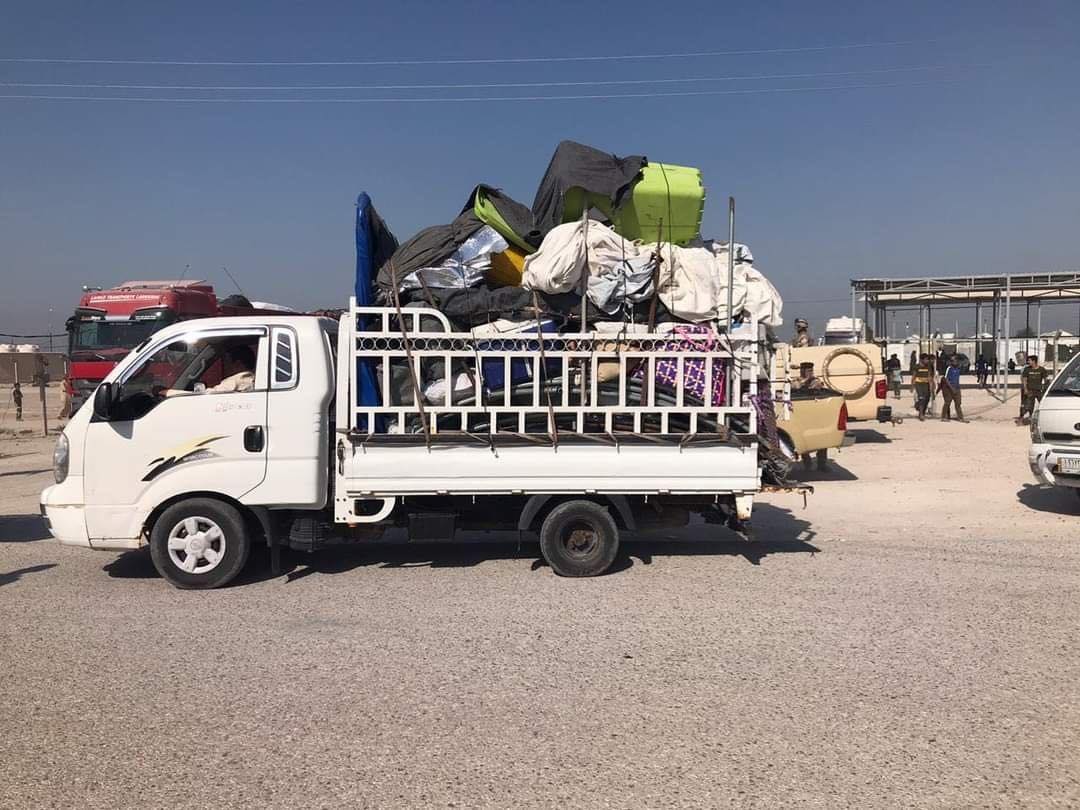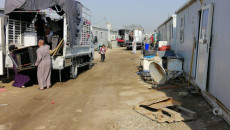In light of the Ministry of Immigration and Displacement’s programme to close displacement camps across the country, Turkmens returning to Tal Afar district in Nineveh province complain of poor services and the lack of compensations from the government or international NGOs for their lost homes and possessions. But at the same time, they say things in the district are gradually getting better.
Ahmed Muhammad Ali, who returned to Tal Afar from Karbala two weeks ago, says that the COVID-19 pandemic and feeling like second-class citizen as a displaced person led him to return to his home in Tal Afar.
Ali, who is in his forties, told KirkukNow that “services in Tal Afar are improving little by little,” and that the displaced must return to their city to contribute to its reconstruction.
My house was burned. Unfortunately, I have not received any compensation and I do not think I will receive any
“My house was burned. Unfortunately, I did not receive any compensation and I do not think I will get any, so I rushed to restore it myself, as much as my [financial] abilities allowed it." Ali says.
Another returnee, Amina Hadi (35 years), also speaks of lack of services in Tal Afar district. She says she has applied for the grant of 1.5 million Iraqi Dinars (about $1,260) which the government is planning to give each IDP family that returns to their home region.
Amina pointed out that the grant is not sufficient to rebuild her damaged home, nor to purchase kitchen supplies. But nevertheless, she is waiting for her turn to get the grant.

Ministry of Immigration: Thousands have returned within the voluntary return programme
According to statistics from the Ministry of Immigration and Displacement the programme has facilitated the return of tens of displaced families from Karbala, the Nahrawan camp in Baghdad, and Hasan Sham U2 and U3 camps in Erbil province to Tal Afar.
Those numbers show that 18,500 families are officially registered as returnees. It is however believed that the real number is about 24,000 families, as some of them refrain from registering.
On 21 October, the Iraqi Ministry of Immigration and Displacement announced the closure of the last IDP camp in Karbala province in the south of the country, which was sheltering 560 displaced people from Nineveh province, all of whom voluntarily returned after being screened for security.
Ivan Jabro, the Minister of Immigration and Displacement, announced the closure of the Nabi Yunis Camp in Baghdad, after the return of all the IDPs to their home regions in the Nineveh province.
The minister also announced the return of 393 IDPs from the Khadhir camp on 28 October to their home regions in Nineveh, including al-Intisar, al-Rayhaniya, al-Nahrawan, al-Jad’a, al-Ba’aj, Rajm Hadeed, Sumer, Rabi’a, Kwair, Mahlabia and Tal Afar.
IDPs from Tal Afar are spread in a number of southern and central provinces, especially Najaf, Karbala and Babel, but also in the Kurdistan Region, Kirkuk and Turkey. About half of them have returned to their city after its liberation from ISIS control in August 2017.
Tal Afar is located 69 km northwest of Mosul. It came under ISIS control in June 2014, and most of its population (about 225,000) was forced to flee.

Returnees from Turkey
"I couldn’t afford the costs of living any longer; everything was expensive. I was working from early morning until nightfall, and yet I was not able to afford living costs: rent, electricity, water, healthcare, transportation, and the list goes on," says 50-year-old Fuad Hazim, who returned from Turkey several weeks ago.
Smiling, Fuad added to KirkukNow: “We spent nearly five years in Turkey, but we decided to come back to our city and our home.”
I visited several international organizations and government offices in order to obtain a financial grant to rebuild my partially-destroyed house, but until now I have obtained nothing but promises and apologies
“Since I returned, I visited several international organizations and government offices in order to obtain a financial grant to rebuild my partially-destroyed house, but until now I have obtained nothing but promises and apologies. So, I decided to restore part of it until I can afford the rest of it.”
“What encouraged me the most to return is the large efforts to restore unity and coexistence among the city's residents, as I see a tireless pursuit that encourages me and others to return to Tal Afar,” Hazim added.

What are the reasons that hinder the return of IDPs?
The mayor of Tal Afar, Qasim Muhammad Sharif, had previously attributed the reluctance of the return of IDPs to the occupation of some of their homes, as there is a scarcity of home due to the destruction of large number of houses during the ISIS war.
He explained to KirkukNow that "thousands of homes were damaged during the years of ISIS control of Tal Afar according to statistics from the Civil Defence Directorate, which made their owners occupy the homes of other residents who have not yet returned to them." And that "some of them are residents of the nearby villages that were completely destroyed, as 14 villages were registered as being completely destroyed."
He added that among other reasons that stand in the way of IDPs to return “are the lack of job opportunities and the government's failure to provide financial compensation to those affected, in addition to the lack of services."
Governor of Nineveh: Tal Afar is ready to receive the displaced
The governor of Nineveh Najim al-Jibouri said: “The Tal Afar district is ready to receive all the displaced families who were living inside the district after the security stabilization […] and the return of health and educational services." Adding, in a meeting with tribal chiefs and notables of Tal Afar in his office, that "the district enjoys a peaceful coexistence between its components."
The Tal Afar district is ready to receive all the displaced families
The returnee Ahmed Muhammad Ali says: "I visited Tal Afar two years ago and people at that time were anxious and were worried about the security situation and the [potential] return of terrorist groups to the district. But today those who witness the construction and reconstruction activities are convinced that things are getting better, except for job opportunities, which needs attention [because] it encourages the return of others.”






